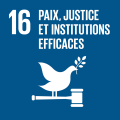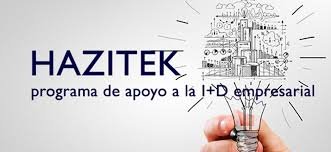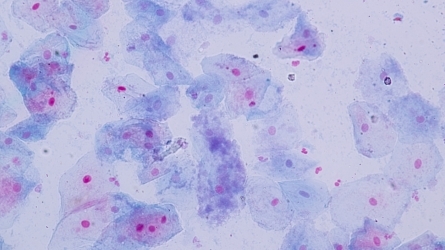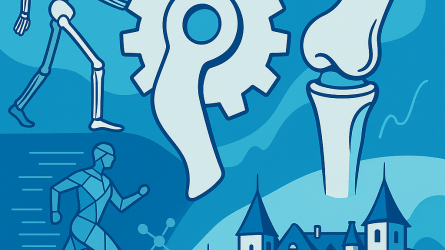
Primer encuentro de jóvenes investigadores: nuevos retos del derecho digital
Description
Con el fin de fomentar la creación de la red y las nuevas líneas de investigación, se pretende unir a los jóvenes investigadores cuyo ámbito de estudio sea la aplicación de las nuevas tecnologías al derecho. Así, se organizarán las distintas ponencias por materia realizando un debate posterior. A su vez, se presentarán dos casos prácticos que se han llevado a cabo a nivel País Vasco e internacional con el objetivo de ver en la práctica los problemas que surgen en este ámbito.
Objectives
Crear una red de jóvenes investigadores.
Fomentar la creación de nuevas líneas de investigación.
Dar visibilidad a las y a los jóvenes investigadores.
Activity directed to
- Jóvenes investigadores
Contributors
Program
09-09-2024
Erregistroa / Registro
Institutional Opening session. Speaking order:
Bienvenida / harrera
- Itziar Alkorta Idiakez | UPV/EHU - Profesora Titular de Derecho Civil
Presentación de la jornada
- Idoia Landa Reza | UPV/EHU - Profesora Ayudante Doctora
Round table: “La contratación en el entorno digital“
La digitalización del Derecho de obligaciones
- Esther Arroyo Amayuelas | Universidad de Barcelona - Catedrática de Derecho Civil
Manipulación del consentimiento del consumidor digital mediante patrones oscuros
- Aitor Mora Astaburuaga | Universidad de la Rioja - Investigador predoctoral
La imputación de responsabilidad a Amazon por la comercialización de productos defectuosos
- Tomás Gabriel García Micó | Unviersidad de Barcelona - Investigador postdoctoral
Break
Round table: “El derecho a la Protección de Datos Personales “
La herencia digital
- Sergio Cámara Lapuente | Unviersidad de la Rioja - Catedrático de Derecho Civil
La protección de los datos de la persona fallecida
- Idoia Landa Reza | UPV/EHU - Profesora Ayudante Doctora
A propósito del Espacio Europeo de Datos de Salud: interacciones y asimetrías con la protección de datos personales
- Mikel Recuero Linares | UPV/EHU - Investigador Predoctoral
Break
Round table: “Derecho de Inteligencia Artificial“
La protección de datos en la era de la Inteligencia Artificial
- Itziar Alkorta Idiakez | UPV/EHU - Profesora Titular de Derecho Civil
La responsabilidad de los prestadores de servicios en la sociedad de la información ante el nuevo art. 7 del Reglamento de Servicios Digitales
- Mario Santisteban Galarza | UPV/EHU - Investigador Predoctoral
Confianza sin fronteras: La interoperabilidad entre sistemas en el Espacio de Libertad, Seguridad y Justicia
- Francesca Tassinari | UPV/EHU - Investigadora postdoctoral
Supervisión humana de sistemas de IA en el AIAct y en el RGPD
- Guillermo Lazcoz Moratinos | IMPACT-Genómica - Investigador contratado doctor
Closing session
- Idoia Landa Reza | UPV/EHU - Profesora Ayudante Doctora
Directors

Idoia Landa Reza
UPV/EHU
Assistant Professor of Civil Law at the University of the Basque Country. She defended her international doctoral thesis “The right to the protection of personal data in the connected healthcare field: special reference to older people with disabilities” in February 2023, achieving the Cum Laude qualification. From September 2021 to February 2022, she completed two doctoral stays: the first at the Alma Mater Studorium University (Bologna, Italy) and the second at Dublin City University (Dublin, Ireland). She has been hired as contracted research staff in the SMART BEAR project, which is part of the EU Framework Program Horizon 2020. Likewise, she participates in the OSASUN DATA project, part of Basque Government’s Hazitek program.
Speakers

Itziar Alkorta Idiakez
UPV/EHU
She holds a PhD in Law and is a lecturer in Civil Law at the UPV/EHU. Her main line of research is bioethics, a subject on which she has published several monographs and scientific and dissemination articles. She has participated in 4 European research projects of the VI and VII European Framework Programme, as well as in multiple research projects of the National Programme. She has been a visiting professor at the Hastings Center for Bioethics in New York, the Center for Bioethics at the University of Philadelphia and the University of Bordeaux. She was Secretary General of Eusko Ikaskuntza, and later of Jakiunde, Academy of Sciences, Arts and Letters. Vice-rector of quality and teaching innovation at the UPV/EHU between 2008 and 2012, and responsible for the development of the educational model, as well as quality programmes, and training and evaluation of university teaching staff. Between 2013 and 2015, she was Deputy Minister of Universities and Research of the Basque Government.
Esther Arroyo Amayuelas
Professor of Civil and Comparative Law at the U. Barcelona and EU Private Law Jean Monnet Chair Holder at the same University. She has relevant skills for research and educational proposals as shown by different National and European Projects, i. a, those that deepen legal knowledge on the building and development of European Private Law. Fellow of the German DAAD (2003), the Alexander von Humboldt Foundation (2006-2007) and the European Law Institute (2010), she has also been Visiting Scholar at different National, American, European and Asian Universities. She currently teaches European and Spanish private law at the U. Barcelona and also Spanish and European contract law for foreign lawyers at the U. Münster.

Sergio Cámara Lapuente
Professor of Civil Law at the University of La Rioja since October 2007. He graduated (1991) and obtained his PhD with extraordinary prize in 1996 from the University of Navarra. Research stays in Germany (Freiburg, 1993, Munich, 1996) and visiting scholar at Oxford University (2003 and 2015). President of the ‘International Academy of Inheritance Law’ and vice-president of the ‘Spanish Association of Comparative Law’. Director of several research projects on digital law and consumer protection, with several publications on digital succession, as well as work on contract law, trusts, European and comparative private law and intellectual property. Member of several international networks: Comparative Succession Law Group [Max-Plank-Institute - Hamburg, 3 volumes at OUP, Oxford University Press], International Academy of Comparative Law (Paris), European Law Institute [Vienna], etc.; in the latter he has been advisor to the project on ‘Access to Digital Assets’, member of the ‘High Level Expert Group on Digital Succession’ (since 2022) and member of the Advisory Committee of the ELI draft Model Law on ‘Succession of Digital Assets, Data and other Digital Remains’.
Tomás Gabriel García Micó
Ph.D. in Law. Assistant Professor in Private Law at the Universitat de Barcelona. Member of the Consultive Committee of the ELI project on Guiding Principles and Model Rules on Algorithmic Contracts. From September 2023 to January 2024, he was a visiting postdoctoral researcher at the Centro de Investigação em Justiça e Governação (JusGov) at the Escola de Direito, Universidade do Minho (Portugal). In July 2022, he was awarded a Ph.D. in Law with the distinction of Excellent Cum Laude. His dissertation titled 'Surgical Robots and Tort Law' explored the intersections between law and new surgical technologies, specifically surgical robots and medical artificial intelligence, from a comparative law perspective. During the Ph.D., he conducted two research stays: the first one, at the China-EU School of Law (Beijing, September 2019) and the second one at the Dickson Poon School of Law at King's College London (London, January-April 2020)

Idoia Landa Reza
UPV/EHU
Assistant Professor of Civil Law at the University of the Basque Country. She defended her international doctoral thesis “The right to the protection of personal data in the connected healthcare field: special reference to older people with disabilities” in February 2023, achieving the Cum Laude qualification. From September 2021 to February 2022, she completed two doctoral stays: the first at the Alma Mater Studorium University (Bologna, Italy) and the second at Dublin City University (Dublin, Ireland). She has been hired as contracted research staff in the SMART BEAR project, which is part of the EU Framework Program Horizon 2020. Likewise, she participates in the OSASUN DATA project, part of Basque Government’s Hazitek program.
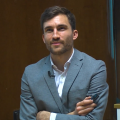
Guillermo Lazcoz Moratinos
GUILLERMO LAZCOZ MORATINOS (CIBERER-IISFJD) Doctor en Derecho por la Universidad del País Vasco (Premio extraordinario en ciencias sociales y jurídicas). Investigador en el Centro de Investigación Biomédica en Red (CIBER) y adscrito al Instituto de Investigación Sanitaria de la Fundación Jiménez Díaz (IISFJD) - Proyecto IMPaCT-Genómica del Instituto de Salud Carlos III. Miembro del Comité de Ética de la Investigación del ISCIII. Premio de investigación Emilio Aced 2022 de la Agencia Española de Protección de Datos Sus líneas de trabajo se centran en la protección de datos en los ámbitos de la asistencia sanitaria y en la investigación biomédica, con especial atención al desarrollo de nuevas tecnologías e inteligencia artificial.

Aitor Mora Astaburuaga
Predoctoral researcher at the University of La Rioja. Graduated in Law (2017) and Master in access to the legal profession (2019) in the same University. He completed a training course in comparative law at the Pantheon Assas 2 University in Paris (2019) and a three-month research stay at the Amsterdam Center for Transformative Private Law (2024). He has been working on consumer law issues in the digital environment since 2017, among which stands out having been awarded a second prize at the García Goyena Legal Articles Awards (2019/2020). His current line of research is focused on the study of contractual consent and transparency in the digital environment, with the thesis " La aplicación del principio de transparencia en el proceso de formación de los contratos celebrados con consumidores en el entorno digital".

Mikel Recuero Linares
Contracted researcher (EuCanImage project, H2020 program of the European Commission) and doctoral student ("Scientific research and sensitive personal data: European responses to globalized challenges") at the G.I. in Social and Legal Sciences applied to New Technosciences from the UPV/EHU. He has done a research stay at the Law, Science, Technology and Society Research Group (LSTS) of the Vrije Universiteit Brussel. he obtained a second prize in the Emilio Aced Personal Data Protection Research Award by the AEPD in 2019. Lawyer specialized in Digital Law and Data Protection. He has a master in Law (UPV/EHU) and a master in Telecommunications Law, Data Protection, Audiovisual and Information Society (UC3M). Member of the Law and Human Genome Network, GA4GH and Citizen8, and substitute of the GBCC of Farmaindustria.

Francesca Tassinari
Francesca Tassinari is a Juan de la Cierva postdoctoral researcher at the Department of Public Law at the University of the Basque Country (UPV/EHU). She has a doctorate in legal sciences, European Union law and national legal systems from the University of Granada (UGR) and the Universitá degli Studi di Ferrara (UNIFE). She completed the Master's Degree in Immigration Law and the Master's Degree in Higher International and European Studies at the UGR. First graduate of the Double Degree in Law between UNIFE and UGR, her excellent academic profile has been double awarded by the Ferrara School of Law and UGR-Caja Rural de Granada. Her main lines of research focus on the study of the use of new technologies – biometrics and artificial intelligence – applied to the migration phenomenon and police cooperation in international and European Union law.

Mario Santisteban Galarza
Doctor en Derecho por la Universidad del País Vasco (UPV/EHU), actualmente beneficiario de una beca posdoctoral en la Universidad Miguel Hernández de Elche. Ha trabajado en materias de Derecho digital, particularmente la responsabilidad de los intermediarios en la sociedad de la información, ultrafalsificaciones, uso de inteligencia artificial y criminalidad en comunidades en torno a los videojuegos.
Registration fees
| Face-to-face | Until 31-05-2024 | Until 09-09-2024 |
|---|---|---|
| 25,00 EUR | 33,00 EUR | |
| - | 47,00 EUR | |
| - | 40,00 EUR | |
| - | 33,00 EUR | |
| - | 40,00 EUR | |
| - | 40,00 EUR |
Venue
Miramar Palace
Pº de Miraconcha nº 48. Donostia / San Sebastián
Gipuzkoa
Miramar Palace
Pº de Miraconcha nº 48. Donostia / San Sebastián
Gipuzkoa
Sustainable development goals
Agenda 2030 is the new international development agenda approved in September 2015 by the United Nations. This agenda aims to be an instrument to favour sustainable human development all over the planet, and its main pillars are the eradication of poverty, a reduction in equality and vulnerability and fostering sustainability. It is a unique opportunity to transform the world up to 2030 and guarantee human rights for all.

16 - Peace, justice and strong institutions
Foster peaceful and inclusive societies for sustainable development, facilitate access to justice for everyone and construct efficient and inclusive institutions that are accountable at all levels. Key issues: a reduction in violence, mistreatment and exploitation, the rule of law, equal access to justice, a reduction in corruption and bribery, efficient and transparent institutions, participation, access to information, protection of fundamental freedoms.
More information